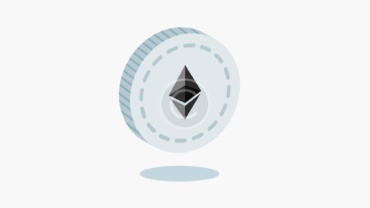
There are thousands of digital currencies, different, and each has its own characteristics and capabilities. The challenge is finding which of them have the top contenders. Market capitalization, technological innovation, adoption, and community support of certain cryptocurrencies have made this much easier. We now take it step by step and outline the top 10 cryptocurrency coins in detail and what makes them special.
1. Bitcoin (BTC)
Bitcoin, one of the most highly distributed and broadly known cryptocurrencies, does not require any extended introduction. Starting in 2009 by an individual or group of individuals behind the pseudonym Satoshi Nakamoto, it revolutionized the whole world through blockchain technology and decentralized digital currency. As there can only be 21 million coins, Bitcoin can function as a store of value and act as a medium of exchange, taking on different types of investors and enthusiasts.
2. Ethereum (ETH)
But there’s more than digital currency; it is a decentralized platform for smart contracts and decentralized applications (DApps). Starting in 2015 by its founder, Vitalik Buterin, and co-founders, the programmable blockchain of Ethereum has catalyzed growth in decentralized finance (DeFi), non-fungible tokens (NFTs), and many others.
3. Binance Coin (BNB)
Binance Coin is the native cryptocurrency of Binance, the world’s largest cryptocurrency exchange. It has started as ERC-20 token on the Ethereum blockchain, though it has moved to a proprietary blockchain from Binance known as Binance Smart Chain or BSC, in 2019. BNB can be used for the payment of trading fees, joining token sales, and unlocking many additional features of the Binance ecosystem.
4. Cardano (ADA)
Cardano is a development environment for blockchains, distinguished by scientific approach to its approach, focusing on scalability, interoperability, and sustainability. Supported by the co-founder of Ethereum, Charles Hoskinson, Cardano focuses on giving a safe and scalable infrastructure where DApps and smart contracts can be deployed. It’s all about rigorous scientific research and academic partners pointing towards the possibility of changing many aspects of multiple industries’ life.
5. Solana (SOL)
The Solana blockchain is a high-performance blockchain platform for decentralized applications and cryptocurrencies. Founded by Anatoly Yakovenko in 2020, this chain remedies scalability and performance constraints imposed on other blockchain networks through a new consensus mechanism called Proof of History. With rapid transaction speeds and low fees, Solana attracts developers and users looking for efficient solutions.
6. Ripple (XRP)
Ripple is both a digital payment protocol and a cryptocurrency created in 2012, initially by Ripple Labs. Unlike the decentralized networks of Bitcoin and Ethereum, the Ripple is a system, which is primarily a centralized network for fast and cheap payments across borders. A native currency, called XRP is the one used within the Ripple system for inter-working bridging between different fiat currencies and cryptocurrencies.
7. Polkadot (DOT)
It is a multi-chain blockchain platform that focuses on interoperability between diverse blockchains. The company was founded by Dr. Gavin Wood, an early figure at Ethereum. The network looks forward to providing a decentralized and scalable means of communicating as well as sharing data across blockchains. Its focus areas are scalability, governance, and interoperability, and that makes it one of the major players in the blockchain world.
8. Dogecoin (DOGE)
Orignially created as a parody, funny cryptocurrency, the inspiration “Doge” meme helped create Dogecoin develop into a well-recognized digital currency with a very active community. Founded in 2013 by Billy Markus and Jackson Palmer, Dogecoin is marked by its friendly Shiba Inu dog as its emblem and features colorful community, charity acts, and virally erupting moments.
9. Chainlink (LINK)





